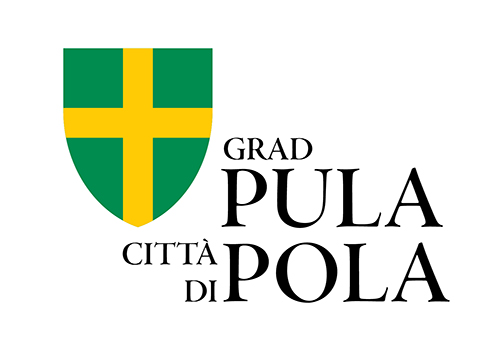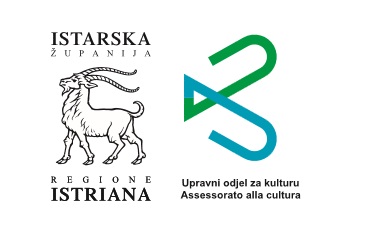
The crew of Lada Kamenski, even though without its female members, presented its work on the film at today’s press conference. Marko Šantić is the co-director alongside Sara Hribar, who, he admits, is responsible for the idea of a film about the workers of the former factory. “Lada is a fictional character Sara thought of while recovering from an autoimmune disease. She had time to think, and the screenplay is really the most valuable part of this film,” Šantić said. He always wanted to work with Sara, and when he read the screenplay, there was no doubt in his mind about co-directing. “She already had all of the characters worked out, and the lives of actresses and other characters are intertwined on purpose. The only thing we had to be careful about was not to make a documentary film,” said Šantić, explaining that the actresses were very motivated and allowed for the line to be more flexible. Frano Mašković, who was in each of Sara’s films, played the male protagonist. “When you get the role of lead in a film in Croatia, it is like winning a medal at the Olympics, and I am very grateful for this opportunity. Playing a director was completely different from anything I’ve done so far,” Mašković said. He thinks the actresses are fantastic, and because they already know each other, they quickly got along on set. “We were interested in where we could expose the actresses a bit and work in the story about Kamensko,” he said, adding that Lada Kamenski is a very good film. Producers Jure Pavlović and Bojan Kanjera emphasised that the film was filmed with no financial funds, which was very challenging, but also encouraging. “It allowed for childish, true love of film to shine,” said Pavlović. Funds from the Croatian Audiovisual Centre (HAVC) and the City of Zagreb helped them in postproduction. Luka Grubišić-Čabo was the sound designer and shared an anecdote: “The cat, Daphne, meows the most if someone rubs her belly, so we had to do it to get the sound we were looking for.” Cinematographer Vjekoslav Skledar had the difficult task of filming in a small space of a rented apartment in Zagreb. “The excellent actresses fascinated me so much that I was literally tripping over them,” he said. After Pula Film Festival, the film will be released in cinemas in autumn.
The second film presented at today’s press conference was Comic Sans, directed by Nevio Marasović and filmed on the islands Jabuka and Vis, and in Zagreb. “The project dragged on for almost six years, and I’m glad it’s finally come to fruition,” said Marasović, who has roots on the Island of Vis. Janko Popović Volarić plays the role of male protagonist, and said jokingly he has had enough of acting in Marasović’s films. “My character always gets injured, and I hope he’ll choose another actor next time,” he said. Still, he enjoyed filming on Vis, and says the crew got along nicely, and that he especially liked the screenplay. The supporting male is played by Zlatko Burić, who thinks Marasović is an excellent director. The supporting female role was given to Inti Šraj, who said she had a lovely time acting with a male cast. “I had good chemistry with Janko, he was an excellent partner and he gave a lot of himself into his role,” she said. Damir Kudin was the cinematographer, and said they were very careful not to let the set take over the dramatics and story: “It was a slippery slope, but I think we managed,” he concluded.
The book Time Machine 2 was presented in Pula today. It includes a range of texts by interesting authors who wrote about their experiences of the 65 years of the Festival.
The authors were presented by Festival director Gordana Restović. “We pooled authors who have given their own unique voices to their texts and have provided another angle to their stories,” she said.
Bruno Kragić wrote about actors Boris Dvornik and Pavle Vujisić. “Reviews are often focused on the work of the directors, but we perceive the film through the actors. The careers of these great actors started at the time this Festival was established, and they have followed it in its development. Also, this year we are marking the anniversaries of both actors’ deaths: 30 years from the death of Vujisić and 10 years from the death of Dvornik,” Kragić said speaking about why he chose to write about these two actors. “Both have made a mark in our cinema. They are outstanding actors who received awards in Pula,” he added.
Jurica Pavičić wrote about the awards in his text. “I listed all awarded films, as well as those that did not receive awards in Pula. It’s interesting that a lot of great films did not receive awards, and equally, that some awarded films were quickly forgotten,” said Pavičić, adding that the ‘principles’ of awarding films have changed in terms of style, genre, and even geography. Boško Picula wrote about all 25 years of Croatian film and the transition from the former country to today. “Pula was going through a lot of changes at the time. The 38th Film Festival was falling apart in the worst war Croatia has seen. War also had an impact on film. However, the film How the War Started on My Island was proof that Croatia wants Croatian films,” he said, adding that film is indestructible. Igor Duda wrote about the effect the
Festival has had on Pula and the people of Pula, about the time when people used to go in the Arena by jumping walls in order to see at least one film. Diana Nenadić wrote about independent film in the context of Pula, while Lana Skuljan Bilić wrote about the rich collection of objects of the Historical and Maritime Museum of Istria and the 1,000 photographs by Dušan Čurić, who, other than excellent portraits of Milena Dravić, Boris Dvornik and other famous actors, also took photos behind the scenes of the Festival, the organisers and those who many people don’t get to see. “He was there 24/7, taking photos. He developed the photos every night so they could be sent to Zagreb by bus in order to be published in Večernji list the following day,” said Skuljan Bilić. Danijel Rafalić focused on the journal kept by Richard Burton during the filming of Sutjeska and Burton’s stay in Pula. The journal reveals his description of going to Brijuni Islands, cynicism about the film, and a range of unknown details. “The combination of the glamour of the time and the Festival falling apart was interesting to me,” said Rafaelić. Miroljub Vučković wrote about Pula and its film festival throughout all of its 65 years: “I wrote about my recollections from Pula, for example, the dress rehearsal for the opening ceremony and the preparations for Tito’s arrival to the Arena,” he said. Sanela Pliško is the editor of the book, and has authored one of the texts. “My inspiration was the excellent book 207 Festival Days, which should certainly get a sequel,” she said.
Igor Galo was presented with the Fabijan Šovagović Award, and said it is important to him in many ways: “I knew Fabijan Šovagović. I acted alongside him as a boy, and at the time I wasn’t aware of what it means to be acting with such great actors like Mia Oremović and Relja Bašić.” Galo added that his childish play grew into love of film. “I am extremely proud to have worked with them; it was a huge learning curve for me, bigger than going to the Academy,” he said, adding that the fact this award is presented by experts, and that the decision was unanimous, means a lot to him. “I worked on as many as ten feature films before I turned 30, something that can’t even be imagined today,” he added. Galo was cast in very different films in terms of genre, and all of his roles were different. He remembers his first film, Nemiran, in particular, as it was not typical for this area, a true “Bergman-style film”. He also remembers acting alongside Boris Dvornik and Pavle Vujisić, and emphasises film has always been in his blood. “I’d love to shoot a film about myself today, about a 70-year-old man who knows everything about himself and can face all challenges without making uncomfortable compromises,” he said. However, he doesn’t have any offers, which he blames on the fact he is far from the capital city. “I live in Pula and I’m going to stay here. I choose the province, even though I am aware it is a burden for my career,” said Galo in conclusion.




